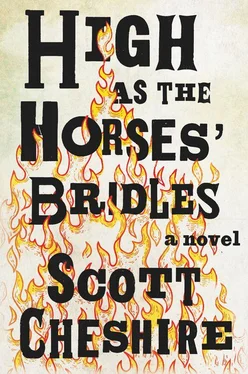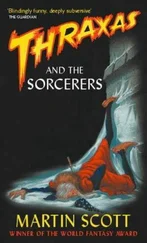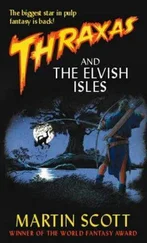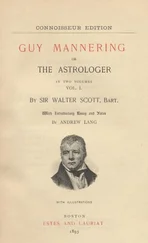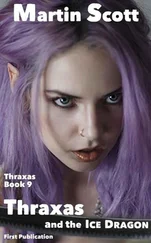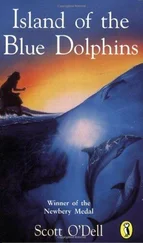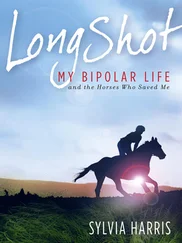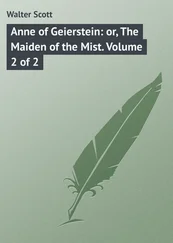It was still dark, before dawn, about a half mile down the beach from home, by the basketball courts. We’d been back in Otter for a week already, and I’d been rolling Dad around town in his fancy new chair, special-ordered, an all-terrain chair rigged for beaches. Large, white, with rubber pneumatic tires. Sky-blue seat cushion. It cost over two thousand dollars, and we were ready for just about anything nature might send our way. I wanted to watch daylight come on with my father.
Beaches are such a strange place in the dark, and so full of sounds, the rush and hush of water. I pushed the chair along on the concrete until we reached the courts. And when I pushed the chair onto the sand, it was exciting to see the wheels at work. The sand slowed us down, but not much, and we rolled along on the beach. We rolled over the sand to the courts, and we rolled over the courts and the painted lines to the short wall surrounding the concrete. I sat down and pulled the brake on the chair. In the center of the court, between the two poles, was a basketball, set in a recessed drain. There was a steel-wire trash bin filled with empty cans and bottles and partially deflated basketballs. A scrunched-up volleyball net spilled over the side. I centered my father in his seat, because he’d been slouching, his hair long and loose. His elbow was off the armrest, almost touching the fat wheel. I dried his mouth.
I said, “The water is right there ahead of us. It’s hard to see, but you can hear it.”
The sky was dark and deep, and a whole new day was waiting for us. I wiped saliva from his mouth. He wasn’t speaking, not because his tongue or his brain had failed him, I think, but because he was exhausted.
I’d quit smoking for good when I got back. The tricky thing with smoking I figured is that you really want to smoke — as in, I really wanted to smoke. But then I just no longer wanted to. It happened when we got to California, on the shuttle bus to Otter. I’m not saying it’s always this easy. I’m not saying I discovered some secret, I’ve figured out the cure for lung cancer: Just stop wanting . I’m saying I gave it a lot of thought.
I asked him if he was hungry. “Are you thirsty? Is it okay us sitting like this?”
I thought of that parable of houses built on sand. When the rains come falling and the floods come rushing, the houses on rock do fine. But the houses on sand are in for a shitload of trouble. Maybe that’s why southern California seems forever destined for trouble, earthquake, fire, drought. I asked him if he remembered the parable.
I said, “Just look at all that water.”
I stood up from the wall and walked toward the surf, where the ocean crawled along the horizon like a shadow you could see in the dark. It spat up and sloshed on the shore, coming up at me, and then falling back, like a tease. Think of a river, a long and meandering thin map line of a river, and its delta mouth fanning out and into the ocean. I was staring from the mouth of some great river, at the mouth of some vast unknowable and shapeless thing.
And then Dad called out: “Josiah.”
I turned.
I wasn’t sure if I was only hearing things in the wind maybe: a seagull, or someone else on the beach. I looked around. But then I saw his mouth move. He said again: “Josiah.”
I jogged back over the sand, almost manic, tripping in the catch of the sand. I couldn’t get to him fast enough, afraid he might never speak again. I didn’t want to fail him.
He was slouching there like a skinny little boy on phone books, a blanket over his legs, getting smaller by the second. I said, “Look at you, you’re alive.”
He nodded once, affirmative.
“How you feeling? Are you cold?” I was shocked, and trying to work through my shock. I set him straight in his seat. The dune grasses rubbed and shushed in the breeze. There was singing in the distance. He looked over toward the singing.
“I hear it, too,” I said. “You been ignoring me? Something tells me you’ve been hearing me fine all along.”
He said, “You sleep well?”
I said, “I couldn’t really sleep. How about you?”
“This chair is ridiculous.”
I laughed. “I know, I know.”
The singing was more than one voice. We saw a fire down the beach, a small fire, a flaring match head from where we sat. He asked me if I had dreams.
“As in last night or what do I want to do with my life?”
“Last night.”
His voice was clear and firm, but low. He cleared his throat. He sounded like a man who’d been biding his time until he had something to say.
I said, “Last night, I don’t remember. But I have dreams. Look at you, all talkative.”
He breathed a great, big, wearisome sigh.
I said, “Sometimes I have nightmares, bad ones. But not as much as I used to.”
He faced me as much as he could. “I’m sorry to hear about that.”
“Not a big deal.”
We listened to the singing and watched the match head bob down beach.
He said, “What about?”
I heard the voices of children. I said, “The usual. Death. Hell. Murder.”
I laughed, and so did he.
I said, “I have this one, a recurring one like outer space. No light or stars. But there is this one light, a white pinprick of light. I think it’s supposed to be me. And it gets bigger and whiter until it takes everything over. And there’s a screaming happening the whole time. Not like a voice, more like a low-flying plane. And it’s louder and louder until I can’t hear or see anything else at all. And I’m gone. Then I wake up with a hard-on.”
“That’s terrifying.” He laughed while he said it.
A small group was coming up the beach.
He said, “I think my heart is slowing down.”
“What?”
“Every day gets a little slower.”
“It’s slowing down right now?”
He smiled, patted my hand.
They were out there now by the waterline, Boy Scouts in army-green shorts, red handkerchiefs around their necks. A dozen of them, ten or twelve years old. Their pack leader had a torch, and they moved slowly, probably looking for air bubbles and crabs hiding under the sand. They were singing and I knew the song, or at least I knew part of it. I knew the first verse, the chorus. They sang: “As I went walking that ribbon of highway, / And saw above me that endless skyway.…” It was lovely. I looked at my father. He wasn’t quite asleep but it seemed he’d already fallen back inside himself.
“Dad?”
The group stayed by the water; they’d probably found a jellyfish. Their singing was petering out, and attentions were elsewhere. But a few kept singing, and I wanted them to sing because I wanted to hear the rest of the verses. How did the rest of it go? I actually knew nothing about this song, and yet I must have heard it a hundred times.
One of the taller boys threw rocks at the water, and then ran up the beach away from the others. The pack leader called after him and lowered his torch to the sand. The boy ran even farther up the beach.
The sky was opening up some. I saw clouds. A subtle light sneaked up from behind us. There were different shades of blue in the morning.
Dad said, “Maybe it’s a dream of Heaven.”
“Of what? You okay?”
The light was back in his eyes. He said, “Your dream.”
“Doesn’t feel like Heaven.”
“Heaven is a beautiful place.”
“Well, the dream definitely is not beautiful. How do you feel?”
The sky grew lighter. The boys were crouched, poking at something in the sand. The pack leader held the fire up high, looking out for the boy who’d run off. By now, the torch seemed superfluous.
“What’s the most beautiful thing you’ve ever seen?”
“I’m really glad you’re talking.”
Читать дальше
